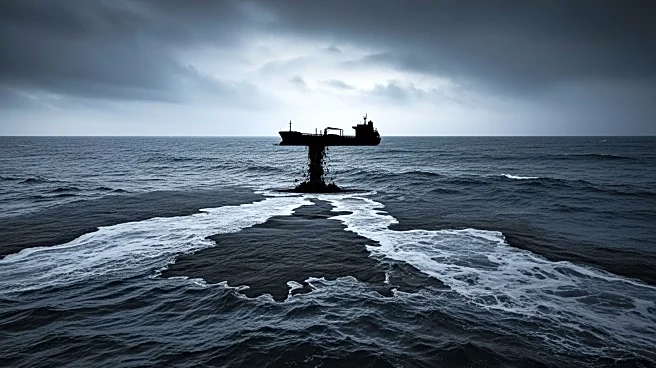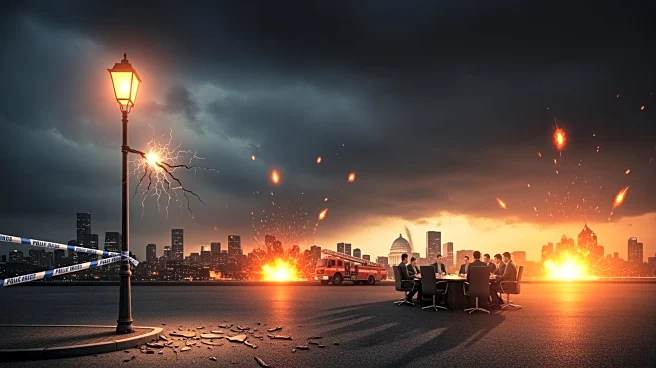What's Happening?
Russian tankers, part of a shadow fleet, continue to dump oil in European seas, posing significant environmental risks. This follows a 2024 investigation revealing oil spills linked to these vessels. Despite sanctions from the Group of Seven and the European Union, which have blacklisted hundreds of these tankers, the fleet has grown to 1,300 ships. These tankers, often underinsured and with opaque ownership, are difficult to track and hold accountable. The Latvian Energy Minister, Kaspars Melnis, highlighted the ongoing threat of environmental disasters due to these operations.
Why It's Important?
The continued operation of these tankers undermines international efforts to curb Russian oil exports, a significant revenue source for Russia. The environmental risks posed by these spills could lead to costly clean-up operations, potentially funded by European taxpayers. The situation also highlights the challenges in enforcing international sanctions and the need for more robust tracking and accountability measures for maritime operations. The decrepit state of these tankers increases the likelihood of accidents, posing further risks to marine ecosystems and coastal communities.
What's Next?
European governments may need to enhance their monitoring and enforcement strategies to prevent further environmental damage. This could involve increased collaboration with non-EU countries where these tankers are registered, urging them to take action against these vessels. Additionally, there may be calls for more stringent international maritime regulations to address the issue of underinsured and poorly maintained ships operating in international waters.









